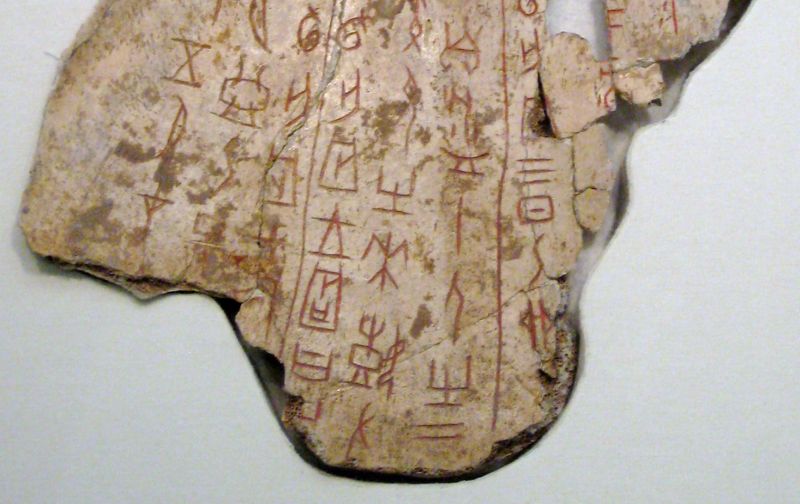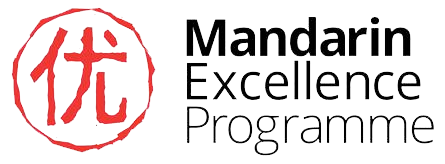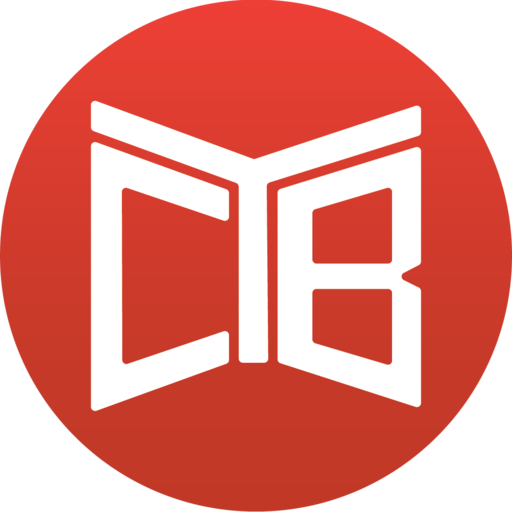Level 2
Wang Yirong Becomes First to Discover Chinese Bone Oracle Script
Wang Yirong Becomes First to Discover Chinese Bone Oracle Script
第一个发现甲骨文的人
第一个发现甲骨文的人


AA
AA
AA
AA
Simplified
Traditional



Pinyin



Pinyin
Keywords
发现 - fāxiàn - to find / to discover
甲骨文 - jiǎgǔwén - oracle script / oracle bone inscriptions (an early form of Chinese script)
出生 - chūshēng - to be born
中药 - Zhōngyào - traditional Chinese medicine
药 - yào - medicine / drug
龙骨 - lónggǔ - dragon bones (ancient bones used in TCM)
生病 - shēngbìng - to fall ill
药店 - yàodiàn - pharmacy
有意思 - yǒuyìsi - interesting / meaningful / enjoyable / fun
觉得 - juéde - to think / to feel
种 - zhǒng - kind / type / classifier for types, kinds, sorts
文字 - wénzì - character / script / writing / written language
找 - zhǎo - to find / to look for
花 - huā - to spend (money, time)
研究 - yánjiū - research / a study
上面 - shàngmiàn - on top
次 - cì - time (i.e. number of times) / classifier for enumerated events: time
Grammar
第 + Number + (Measure Word) - Expressing numerical sequence with "dì + Number + (Measure Word)"
第一个发现甲骨文的人
他是第一个发现甲骨文的人。
这是人们第一次发现甲骨文。
Phrase + 的 + Noun - Expressed to link a noun to a preceding phrase with "Phrase + de + Noun"
第一个发现甲骨文的人
他是第一个发现甲骨文的人。
有一天,王懿荣生病了,医生给他开的药里就有这个药。
他去了很多药店找“龙骨”,花了很多钱,买了很多“龙骨”,开始研究上面的文字。
Verb / Adj. + 于 + Object - Expressing that the action or adj. is "in / at / to / from" a certain object with "Verb + yú + Object" (object can be a place, time, person, entity etc.)
王懿荣(Wang Yirong)出生于1845年,是中国清代人。
(在)...里 - Expressing "in / inside…" with "(zài)...lǐ"
在中国的中药里,有一个药叫“龙骨”。
New Situation + 了 - Expressing that there is a change of state or that the action has just happened "now" with "New Situation + le"
有一天,王懿荣生病了,医生给他开的药里就有这个药。
给 + Noun + Verb - Expressing a more informal "for sb / sth..." with "gěi + Noun + Verb"
有一天,王懿荣生病了,医生给他开的药里就有这个药。
Situation + 就 + Verb / Verb Phrase - Expressing "then / and so / in that case…" with "Situation + jiù + Verb / Verb Phrase" (the action happens "as a consequence of / following on from" the situation)
有一天,王懿荣生病了,医生给他开的药里就有这个药。
这 / 那 + Measure Word + Noun - Expressing "this… / that…" with "zhè / nà + Measure Word + Noun"
有一天,王懿荣生病了,医生给他开的药里就有这个药。
Subject + 让 + Sb / Sth + Verb / Verb Phrase - Expressing "to make or let sb / sth to do sth" with "Subject + ràng + sb / sth + Verb / Verb Phrase" (causative verb)
他让家人去药店买了药。
Verb / Verb Phrase + 了 - Expressing that an action has been completed with "Verb / Verb Phrase + le"
他让家人去药店买了药。
他想找到更多的“龙骨”看一看,所以,他去了很多药店买“龙骨”,花了很多钱,买了很多“龙骨”,开始看上面的文字。
Statement, 但是… - Expressing "but / however…" with "Statement,dànshì…" (a bit more formal than 可是)
他让家人去药店买了药。但是他看到“龙骨”这个药上有一些很有意思的东西,他觉得这可能是一种文字。
Verb + 到 (+了) - Expressed after verbs to indicate completion or success of an action with "Verb + dào (+了)"
但是他看到“龙骨”这个药上有一些很有意思的东西,他觉得这可能是一种文字。
他想找到更多的“龙骨”看一看,所以,他去了很多药店买“龙骨”
(在)…上 - Expressing "in / on…" with “(zài)…shàng"
但是他看到“龙骨”这个药上有一些很有意思的东西,他觉得这可能是一种文字。
一些 + Noun - Expressing "some / a few…" with "yìxiē + Noun" (yīxiē is pronounced yìxiē due to a tone change rule)
但是他看到“龙骨”这个药上有一些很有意思的东西,他觉得这可能是一种文字。
Adj. + 的 (+ Noun) - Expressed to link an adjective describing a distinguishing feature to a noun with "Adj. + de (+ Noun)" (noun can be omitted when obvious or has already been mentioned)
但是他看到“龙骨”这个药上有一些很有意思的东西,他觉得这可能是一种文字。
他想找到更多的“龙骨”看一看,所以,他去了很多药店买“龙骨”
可能 + Statement - Expressing that sth "might (happen) / possibly is / maybe…" with "kěnéng + Statement"
但是他看到“龙骨”这个药上有一些很有意思的东西,他觉得这可能是一种文字。
Subject + 想 + Verb (+ Object) - Expressing "would like to" with "Subject + xiǎng + Verb (+ Object)"
他想找到更多的“龙骨”看一看,所以,他去了很多药店买“龙骨”
更 + Adj. - Expressing "even more…" with "gèng + Adj."
他想找到更多的“龙骨”看一看,所以,他去了很多药店买“龙骨”
Subject + Verb + 一 + Verb - Expressing that the action is "brief" or "a little bit" by reduplicating the verb with "Verb + yī + Verb" (creates a casual tone)
他想找到更多的“龙骨”看一看,所以,他去了很多药店买“龙骨”
Reason ,所以 + Result - Expressing "so…" to explain the result with "Reason ,suǒyǐ + Result"
他想找到更多的“龙骨”看一看,所以,他去了很多药店买“龙骨”
这些 / 那些 + Noun - Expressing "these / those…" with "zhèxiē + Noun"
他觉得这些文字是中国商代的文字。
Grammar
第 + Number + (Measure Word) - Expressing numerical sequence with "dì + Number + (Measure Word)"
第一個發現甲骨文的人
他是第一個發現甲骨文的人。
這是人們第一次發現甲骨文。
Phrase + 的 + Noun - Expressed to link a noun to a preceding phrase with "Phrase + de + Noun"
第一個發現甲骨文的人
他是第一個發現甲骨文的人。
有一天,王懿榮生病了,醫生給他開的藥裡就有這個藥。
他去了很多藥店找“龍骨”,花了很多錢,買了很多“龍骨”,開始研究上面的文字。
Verb / Adj. + 於+ Object - Expressing that the action or adj. is "in / at / to / from" a certain object with "Verb + yú + Object" (object can be a place, time, person, entity etc .)
王懿榮(Wang Yirong)出生於1845年,是中國清代人。
(在)...裡 - Expressing "in / inside…" with "(zài)...lǐ"
在中國的中藥裡,有一個藥叫“龍骨”。
New Situation + 了 - Expressing that there is a change of state or that the action has just happened "now" with "New Situation + le"
有一天,王懿榮生病了,醫生給他開的藥裡就有這個藥。
給 + Noun + Verb - Expressing a more informal "for sb / sth..." with "gěi + Noun + Verb"
有一天,王懿榮生病了,醫生給他開的藥裡就有這個藥。
Situation + 就 + Verb / Verb Phrase - Expressing "then / and so / in that case…" with "Situation + jiù + Verb / Verb Phrase" (the action happens "as a consequence of / following on from" the situation)
有一天,王懿榮生病了,醫生給他開的藥裡就有這個藥。
這 / 那 + Measure Word + Noun - Expressing "this… / that…" with "zhè / nà + Measure Word + Noun"
有一天,王懿榮生病了,醫生給他開的藥裡就有這個藥。
Subject + 讓 + Sb / Sth + Verb / Verb Phrase - Expressing "to make or let sb / sth to do sth" with "Subject + ràng + sb / sth + Verb / Verb Phrase" (causative verb)
他讓家人去藥店買了藥。
Verb / Verb Phrase + 了 - Expressing that an action has been completed with "Verb / Verb Phrase + le"
他讓家人去藥店買了藥。
他想找到更多的“龍骨”看一看,所以,他去了很多藥店買“龍骨”,花了很多錢,買了很多“龍骨”,開始看上面的文字。
Statement, 但是… - Expressing "but / however…" with "Statement,dànshì…" (a bit more formal than 可是)
他讓家人去藥店買了藥。但是他看到“龍骨”這個藥上有一些很有意思的東西,他覺得這可能是一種文字。
Verb + 到 (+了) - Expressed after verbs to indicate completion or success of an action with "Verb + dào (+了)"
但是他看到“龍骨”這個藥上有一些很有意思的東西,他覺得這可能是一種文字。
他想找到更多的“龍骨”看一看,所以,他去了很多藥店買“龍骨”
(在)…上 - Expressing "in / on…" with “(zài)…shàng"
但是他看到“龍骨”這個藥上有一些很有意思的東西,他覺得這可能是一種文字。
一些 + Noun - Expressing "some / a few…" with "yìxiē + Noun" (yīxiē is pronounced yìxiē due to a tone change rule)
但是他看到“龍骨”這個藥上有一些很有意思的東西,他覺得這可能是一種文字。
Adj. + 的 (+ Noun) - Expressed to link an adjective describing a distinguishing feature to a noun with "Adj. + de (+ Noun)" (noun can be omitted when obvious or has already been mentioned)
但是他看到“龍骨”這個藥上有一些很有意思的東西,他覺得這可能是一種文字。
他想找到更多的“龍骨”看一看,所以,他去了很多藥店買“龍骨”
可能 + Statement - Expressing that sth "might (happen) / possibly is / maybe…" with "kěnéng + Statement"
但是他看到“龍骨”這個藥上有一些很有意思的東西,他覺得這可能是一種文字。
Subject + 想 + Verb (+ Object) - Expressing "would like to" with "Subject + xiǎng + Verb (+ Object)"
他想找到更多的“龍骨”看一看,所以,他去了很多藥店買“龍骨”
更 + Adj. - Expressing "even more…" with "gèng + Adj."
他想找到更多的“龍骨”看一看,所以,他去了很多藥店買“龍骨”
Subject + Verb + 一 + Verb - Expressing that the action is "brief" or "a little bit" by reduplicating the verb with "Verb + yī + Verb" (creates a casual tone)
他想找到更多的“龍骨”看一看,所以,他去了很多藥店買“龍骨”
Reason ,所以 + Result - Expressing "so…" to explain the result with "Reason ,suǒyǐ + Result"
他想找到更多的“龍骨”看一看,所以,他去了很多藥店買“龍骨”
這些 / 那些 + Noun - Expressing "these / those…" with "zhèxiē + Noun"
他覺得這些文字是中國商代的文字。
Proper Nouns
清代 - Qīngdài - Qing dynasty (1644-1911)
商代 - Shāngdài - Shang dynasty (c. 16th-11th century BC)
Idioms
Ready to complete the lesson's exercises?
Wang Yirong Becomes First to Discover Chinese Bone Oracle Script


Level 2
Live dictionary
 Stroke
Stroke Write
Write

























